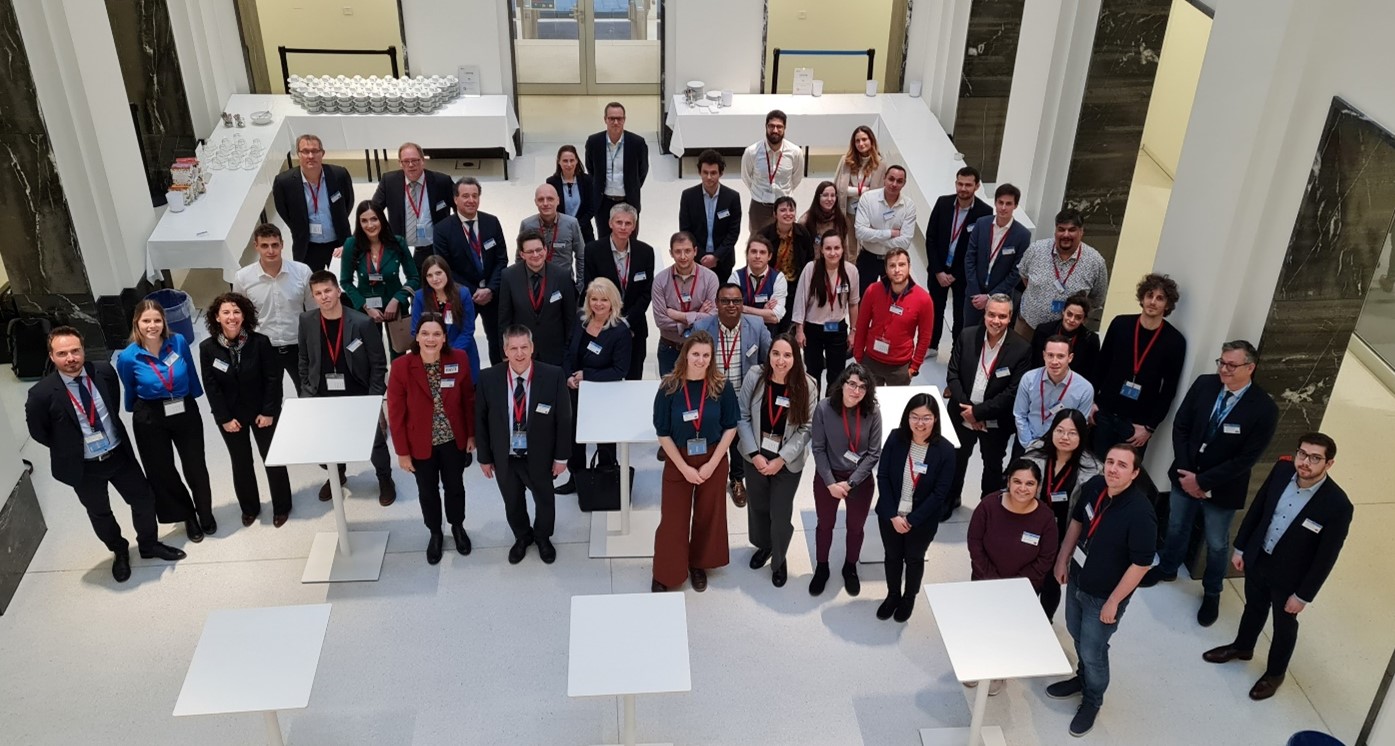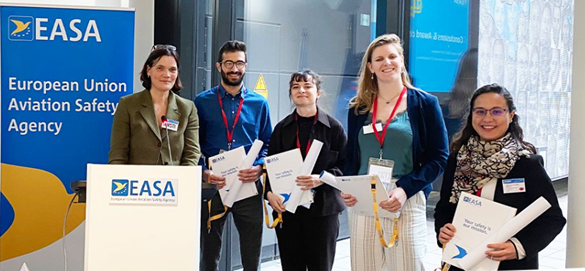Attendance at LNMB Conference
On March 23rd and 24th, a team from TUDelft participated in the first edition of the European_Academia@EASA conference. This conference has the aim of developing partnerships between EASA and European Universities. Around 20 PhD students were invited to present their work to EASA experts. Main topics of interest included the usage of artificial intelligence/machine learning applications, the impact of climate change, and sustainability in aviation.

It was a pleasure to share our work with EASA and other European researchers, especially taking into how pressing the issues of climate change and sustainability are. The future of aviation is directly connected with these factors. Operations must become more efficient, in terms of optimized flight paths and times that result in lower emissions. It is predicted that artificial intelligence/machine learning will be a main factor in enabling this change.
EASA is fundamental in the path towards higher sustainability in aviation. They are responsible for the certification, regulation, and standardisation of aviation operations in Europe. Given the fast development of artificial intelligence/machine learning applications and their associated potential, EASA has the challenging task of defining the criteria that will allow for these applications to be used with real-time, safety-critical operations. The first major milestone of EASA’s Artificial Intelligence (AI) Roadmap was the publication of the first concept paper for guidance and requirements for safety-related machine learning applications. For now, the scope of this paper is limited to supervised learning techniques. An extension of this guidance document to unsupervised and reinforcement learning is undergoing. This is particularly relevant to TUDelft, given our effort in developing innovative operation models using reinforcement learning.
Finally, finishing on a good note, Rebeka van der Grift, a PhD Candidate at the Aircraft Noise and Climate Effects section, was given the opportunity to further share her research with EASA members in the future.
Marta Ribeiro
